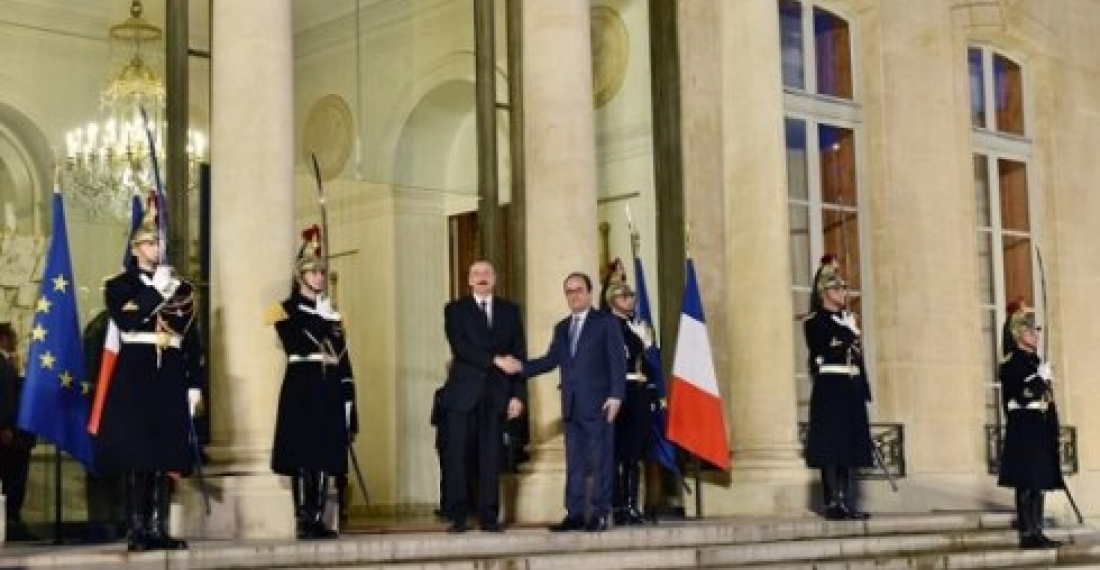The resolution of the Nagorno Karabakh conflict, and the strengthening of bilateral relations, were the main themes in discussions that the President of Azerbaijan Ilham Aliyev had on Tuesday evening (14 March) with the President of France, Francois Hollande during a meeting at the Elysee Palace in Paris. President Aliyev is currently on an official visit to France. Earlier he met with several leading French buisnessmen and industrialists, as well as the leaders of the two houses of the French Parliament.
This evening the Azerbaijani president was the guest of honour at a dinner at the Elysee Palace hosted by President Hollande.
source: commonspace.eu
photo: President Hollande welcomoing president Aliyev at the Elysee Palace on tuesday, 14 March 2017 (picture courtesy of the press service of the French President)







